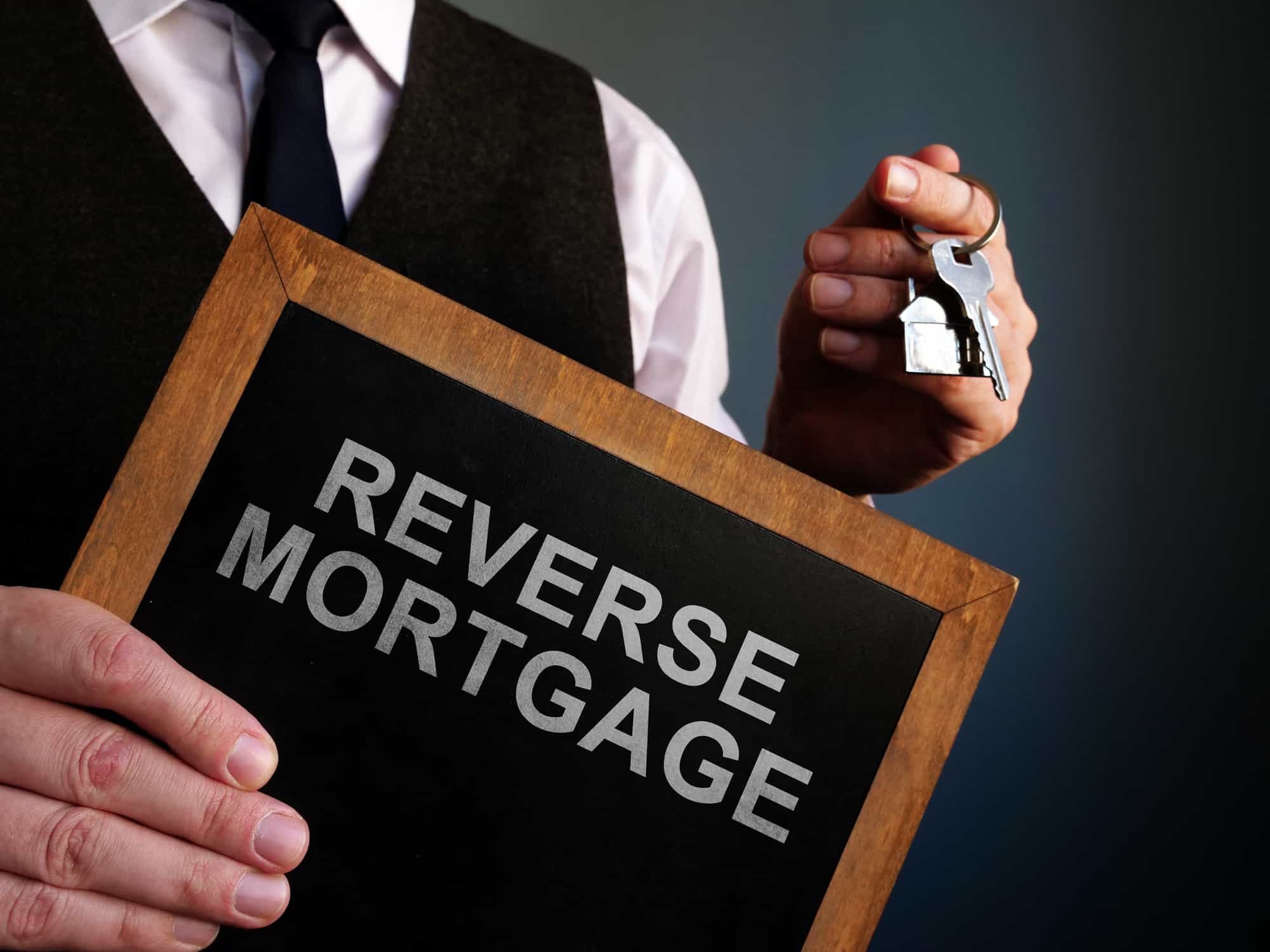A Home Equity Conversion Mortgage (HECM) is a type of mortgage that is insured by the Federal Housing Administration (FHA) and was passed by Ronald Reagan in February 1988. HECMs are more commonly known as a Reverse Mortgage and is something that is only offered to seniors ages 62 or older. A reverse mortgage pays the homeowner every month by tapping into the equity of their home and turning it into additional income.
How Does a Reverse Mortgage Work?
With traditional mortgages, the homeowner pays the lender a mortgage payment every month in order to slowly purchase their home through financing. The more payments that are made, the more equity (the portion of the home the homeowner truly owns) the homeowner has. Reverse mortgages are a type of loan that taps into the equity that the homeowner has been slowly building up over time and uses it to pay them.
Depending on the type of mortgage the homeowner has, they will receive their payment for a reverse mortgage as either a lump sum, fixed monthly payment, a line of credit, or a combination of these options. Homeowners who have a fixed rate mortgage will usually receive a lump sum. The amount that the homeowner is eligible for is based on several factors: the value of the home, their age, and interest rates. If the home value is high, interest rates are low, and the age of the homeowner is higher, they will be eligible to receive more money. There is however a loan limit of $679,150 that one can withdraw.
Reverse mortgages don’t require the homeowner to make payments on their loan while they are still occupying the home nor is there a window of time in which the loan needs to be fully paid back. Because of this, the lender requires that the entire loan is entirely paid off (principal and interest) when it is time to move. If the borrower has passed away, the heirs to the house are now responsible for this debt.
If the borrower did not use all the money they received from the loan, they can use the remainder of the funds to put towards the balance of the loan. If they opted to receive a line of credit, only the amount that was used needs to be paid back. Sometimes, the borrower/ heirs will choose to sell the home to pay the outstanding balance on the loan and pocket what is remaining.
Eligibility Requirement for a Reverse Mortgage
If you want to get a reverse mortgage, there are several requirements that you must meet:
- Since this is a product that is exclusively offered to seniors, you must be at least 62 years old.
- The property that you want to get a reverse mortgage on must be your primary residence
- The primary residence must be a single family home, a 2-4 unit home with one unit occupied by the home owner, a condo approved by the US Department of Housing and Urban Development, or a manufactured home that meets FHA requirements
- You will need to have paid off most of your existing mortgage or your existing mortgage is paid off entirely.
- You cannot be delinquent on any federal debt
- You must have resources to continue making property related payments such as property taxes, HOA (Homeowner’s Association) fees, home insurance, etc.
- In addition to meeting all of these requirements, you must also have a counseling session with a HUD- approved HECM housing counselor. This is not free, you will be paying for this out of pocket.
Types of Reverse Mortgages
There are three types of reverse mortgages: FHA Reverse Mortgages, Single Purpose Reverse Mortgages, and Proprietary Reverse Mortgages. A FHA reverse mortgage, known as the common and traditional “reverse mortgage,” is meant to benefit seniors who have equity in their homes. FHA reverse mortgages have a max amount the homeowner is allowed take out, which is $679,150. The maximum loan amount on a reverse mortgage used to be as low as $200,000, but the limit increased to $636,150 in 2009 and again to $679,150 in 2018 in order to accommodate the rising property values. FHA reverse mortgages, like FHA loans for home purchase, are obtained from approved lenders.
A Proprietary Reverse Mortgage is more commonly known as a Jumbo Reverse Mortgage. Reverse mortgages are insured by the FHA, but jumbo reverse mortgage are not. Jumbo reverse mortgages are usually a product of lenders to assist seniors living in home with very high property values so that they can take out more than $679,150. The main difference between the FHA reverse mortgage and the jumbo reverse mortgage is the amount of money you are able to withdraw.
Single Purpose Reverse Mortgages are the least popular of the three and are intended for a specific, lender-approved item such as necessary home repairs or property taxes. This type of reverse mortgage is funded by local governments and nonprofit organizations so that low income seniors can afford to pay their property taxes and home improvements. Because local and state government agencies and charities support single purpose reverse mortgages, they are not offered everywhere. This type of reverse mortgage is the least expensive because usually a small amount of equity is used.
Benefits of a Reverse Mortgage: Pay Off Your Existing Mortgage
A reverse mortgage is a separate loan that would be taken out in addition your mortgage, so you would have to continue making payments on your mortgage. However, you would be able to pay off the remaining balance on your existing mortgage with the funds from a reverse mortgage. With this method, you would be able to use the money that would normally go to your mortgage payment to put that towards the maintenance of the home or property taxes.
Benefits of a Reverse Mortgage: Increase Your Cash Flow
Many people aim to retire so that they can live a life without working, but there are times when people haven’t been able to save up enough to truly enjoy their later years. With a reverse mortgage, you can increase your cash flow and improve your quality of life, have money put aside for emergencies, pay for home improvements, etc.
Benefits of a Reverse Mortgage: Ownership Does Not Change
It is a common misconception that with a reverse mortgage, you are giving up ownership of the home, but that is not true. Reverse Mortgages can benefit seniors by providing them with additional funds through their home while they are still living in it. You still own the house unless you or your heirs decide to sell it.
Benefits of a Reverse Mortgage: More Security
As previously mentioned, how you get paid out is dependent on what kind of reverse mortgage you have. If you have a fixed interest rate, you will receive your loan as a lump sum. If you opt to have an adjustable interest rate, you can choose to have a line of credit, monthly payments, a small lump sum at closing, or a combination.
If you choose to get a line of credit, you have more control in how much is borrowed. You can withdraw funds if and when you need them and you will only have to pay back what you borrowed. With a line of credit, you can also take advantage of the line of credit growth rate. This means that over time, the line of credit can increase and the lender is unable to change that. This is great for those who are unsure of how long their savings and retirement funds will last and will put them at ease by providing a backup plan.
What You Should Know About Reverse Mortgages
While the main benefit of a reverse mortgage is receiving money, there will be out of pocket expenses in order to get one. With any kind of mortgage, there will be closing costs involved no matter what. The main parts of reverse mortgage closing costs are the upfront FHA initial mortgage insurance premium, title insurance, home appraisal, and the loan origination fee. You can also choose to have your closing cost financed with your loan so that you won’t have to pay any upfront costs.
Overall Thoughts
A reverse mortgage is a great option to have if you’re unsure about the future. It’s a great back up plan that you have ready at your disposal just in case you find yourself in retirement for longer than you anticipated or if there’s a medical emergency that was unplanned. By not having to make monthly payments, you also free up more of your income to put towards other important things.



